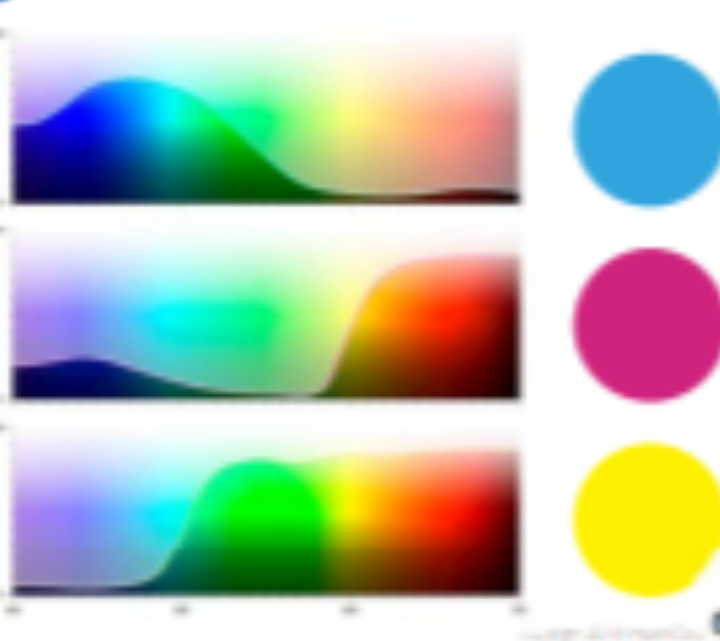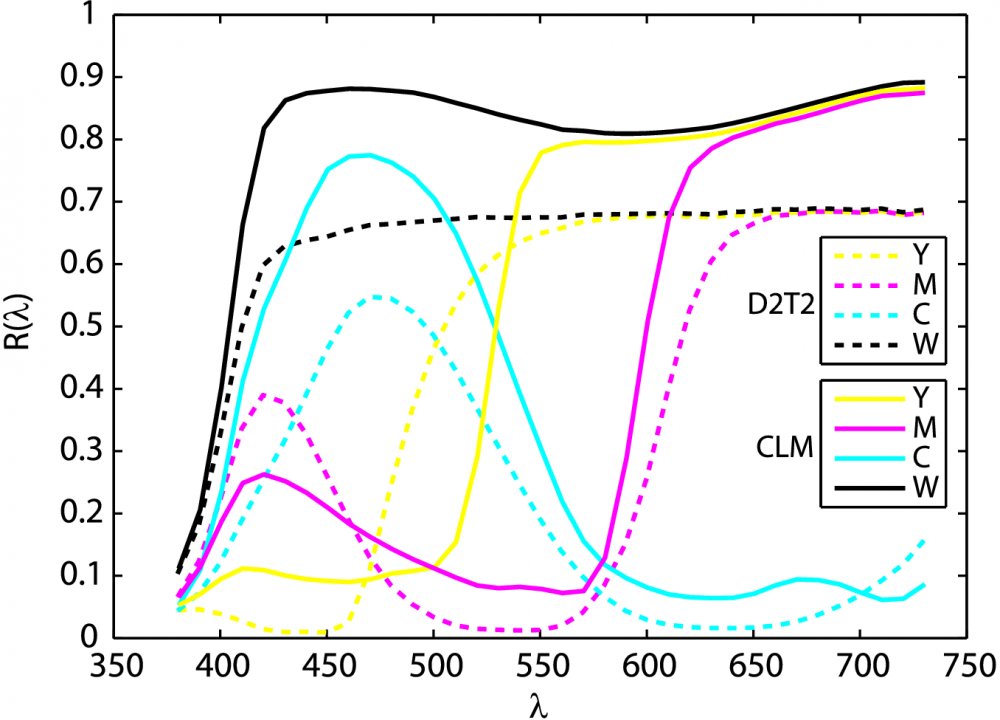Leaderboard
Popular Content
Showing content with the highest reputation on 04/12/18 in all areas
-
Most cosmologists doubt that any physical singularity exists, but singularities do not define a BH. The only defined singularity is that defined by the limitations bounds of applicability of our models such as GR. We most certainly can be sure of BH's, at least as certain as we can with any well supported scientific theory. One would wonder what LIGO has discovered at least 5 times so far if that was not the case..3 points
-
https://courses.vcu.edu/PHY-rhg/astron/html/mod/006/index.html Statements that belong in science must be about reproducible observations. However, as Karl Popper pointed out, there is a much stricter requirement. A scientific statement is one that could possibly be proven wrong. Such a statement is said to be falsifiable. Notice that a falsifiable statement is not automatically wrong. However a falsifiable statement always remains tentative and open to the possibility that it is wrong. When a falsifiable statement turns out to be a mistake, we have a way to detect that mistake and correct it. Examples of Non-falsifiable Statements An alien spaceship crashed in Roswell New Mexico. A giant white gorilla lives in the Himalayan mountains. Loch Ness contains a giant reptile. In each case, if the statement happens to be wrong, all you will ever find is an absence of evidence --- No spaceship parts. No gorilla tracks in the Himalayas. Nothing but small fish in the Loch. That would not convince true believers in those statements. They would say --- "The government hid all of the spaceship parts." "The gorillas avoided you and the snow covered their tracks." "Nessie was hiding in the mud at the bottom of the Loch." None of these statements is falsifiable, so none of them belong in science.2 points
-
And everyone forgets all the sci-fi that unsuccessfully predicted the future: aka most sci-fi.2 points
-
Well as an accreditted Cosmologist I could describe numerous other forms of evidence that the universe is homogeneous and isotropic. However to do so typically gets too math intensive for the average poster. One such methodology involves comparisions of the integrated late time Sache Wolfe effect which will give insight to expansion rate variations. Expansion rates depends upon mass density distributions. This in turn also affects redshift datasets. An anistropic universe if the coamological principle waa incorrect would affect distance measurements. Science today checks the redshift and luminosity to distance relations via various forms of parallax including intergalactic parallax. The formulas of LCDM are formulas that uses the cosmological principle as its basis. Deviations from their predictions would become readily apparent at further distances. The fact that every major dataset involving top of the line detectors that require years to complete a single survey will trump any youtube video in a heartbeat. Here is a SDSS study using galaxy distributions https://www.google.com/url?sa=t&source=web&rct=j&url=https://arxiv.org/pdf/1405.7621&ved=2ahUKEwiS-4aOzrPaAhUIsVQKHf0kDUwQFjAEegQIAxAB&usg=AOvVaw0th8UzI8GIS5z2BOPA69cx I could keep going, for this study there is literally 100's of papers supportive of the cosmological principle. As you can see from this example not all of them require CMB datasets.2 points
-
I told yoi where to find the paper. Do I need to do the work for you on a simple google search. Fair enough here it is. "In summary, we find no evidence for cosmic defects from the Planck 2015 data, with tighter limits than before. 7. Conclusions42 (1) The six-parameter base ΛCDM model continues to provide a very good match to the more extensive 2015 Planck data, including polarization. This is the most important conclusion ofthis paper." https://arxiv.org/abs/1502.01589 The entire paper supports the base 6 parameter Lambda CDM model which specifies a homogeneous and isotropic universe. Your turn (nothing in this paper supports the Earth as having a special location)2 points
-
Acording to QFT, the electron is an excitation of the electron field the Higgs boson is an excitation of the Higgs field etc. Does every elementary particle have it's own field? According to QFT is the universe reduced to 16-17 fields? What keeps the individual field of each particle (the excitation) to be stable? Do these field permeates space and time? Do these fields interact with each other? What about antiparticles? do they reside in the same field as their equivalent particle? And where do the fields that do not have a particle associated to them fit in? like the Faddeev–Popov ghost fields? Is it normal that these questions are enough to keep you up at night? I know I raised many questions in this topic but I feel they are related to each other. References: https://en.wikipedia.org/wiki/Spontaneous_symmetry_breaking https://en.wikipedia.org/wiki/Quantum_field_theory https://en.wikipedia.org/wiki/Faddeev–Popov_ghost1 point
-
! Moderator Note We don't do that, either. I can certainly close the thread if there is no more learning to be done here.1 point
-
And also the theory of evolution. Then of course there "god of the gaps" comes into play.1 point
-
God(s) are supernatural by the definition of science, which is a methodology used to observe the natural world. The much better question is why are they so often mistakenly joined? Speaking of mistakenly joined, I hope you aren't here just to promote your YouTube channel. That's against the rules. This is a science discussion site.1 point
-
Another thread has made me think about the OP again, and might clarify some things. What of your belief in science is of a theory that has been rejected by the mainstream? What if you believed in phlogiston, or geocentrism (to name a randomly chosen failed model)? Your belief in such things is probably most aptly described as a religious belief, since you have to have excluded scientific reasoning and evidence in order to perpetuate your view. IOW, you believe despite the evidence, not because of it. But science is still not a religion, even though your belief is religious.1 point
-
I think that only happens on the first day. You should be ok now.1 point
-
1 point
-
1 point
-
But only The Philosopher, please. Not every philosopher... My sentence is true, ironic and a kind of Rorschach test.1 point
-
One task of philosophy is to analyse the questions we ask and hence come up with better questions. That is one area of philosophy: Philosophy of Science. This asks questions like: what is science? What is science for? How should science be done? How do we tell good science from bad science? Who should pay for science? Is science a good thing? Are there questions science should not ask? And so on ... As for the rest. Too many random questions. They need separate threads in the appropriate part of the forum. If you see The Philosopher on the road, kill him.1 point
-
This sounds about right. But I have a few refinements to it. First point was already made by several others: that science is not a religion, but can be seen as such by certain people. Second point: what could be meant by 'absolute faith'. When it is about empirical claims, then science really is the only bloke in town. Serious investigation in empirical reality is more or less science per definition. There is no other 'science'. That being said, of course science can be blind, by not investigating certain phenomena, by excluding certain hypothesis because they do not fit the present paradigm. Science is human work, and humans make errors, or can be dogmatic, or suffer from group think. So I would say that you can have justified faith in science, meaning that you believe that in the end correct theories will float at the surface. But that's it. If you take the present scientific results as dogmatic beliefs, you are treating science as a religion. To give two examples: A long time it was not believed that proteins could be infectious agents. But then prions were discovered. It was a dogma of evolution that only changes in genes could be inherited ('Lamarckianism' was an insult for everybody who suggested something in another direction). However in epigenetics it was found that under certain circumstance traits can be inherited without changing genes. Third point: not everything in our lives concerns knowledge. E.g. there are values (morality, aesthetics). Science has nothing to say here. Your values determine in what directions you would like to go in your life; science can tell you how you can eventually reach that. So where 'non-compliance' is no logical problem by the former point (just investigate the claims as honest as you can, and you are doing science), it is here. If your 'faith' is in science only, you impoverish your life. You have to deal with the lesser and greater challenges in life, and most of them have nothing to do with scientific knowledge.1 point
-
Yes,it is interesting, but as CharonY says: I am still working on a riposte.1 point
-
They were predicted by theory, before observation was made; that's pretty strong stuff. Also, existence of a literal singularity is not considered fact. The idea of an infinitely dense infinitely small mass is mostly pop-science. All that's needed for a black hole is for its mass to be within a certain size, not necessarily a singularity. So "another fundamental force preventing the formation of a singularity" would not actually disprove or prevent black holes.1 point
-
Any interaction is an 'observation', and causes wave function collapse. And while this makes sense for a particle, or even a small group of particles like a molecule, it becomes absurd for a macroscopic object like a cat. Don't take the interpretation too seriously1 point
-
I haven't devalued any of your comments. I was making you aware of why this topic is debated by others despite the evidence. Its a warning to pay close attention when self studying via internet based resources. There is tons of links, papers vids etc with agendas to overthrow this theory. One has to learn to watch for the signals that indicate an agenda1 point
-
That's your problem, but the evidence overwhelmingly says the opposite. The space age is only 60 years old friend, and obviously the near infinite extent of the universe, and the vast distances between likeley habitats, makes discovery and meetings rather difficult. There is no middle ground...that's simply closeting the obvious. It's either follow the scientific evidence and methodology, or turn your back on logic and entertain the unscientific concepts of the supernatural and paranormal.1 point
-
Its still good to know why certain topics of cosmology is so fiercely competed despite the body of evidence. This happens to be one of those topics where no amount of evidence will counter a persons faith. Anyways hopefully your learning that this particular topic has undergone intensive studies over the decades.1 point
-
Has anyone defined "lightest" and "colour" in this thread yet? You will still change the main topic,this informations don't give any idea about what I asked. I said you can look all color models whatever you want,the lightness value of yellow higher than any other colors (pure hues i.e red green blue violet cyan) except white which makes it the second lightest color and nearest to white. Absolutely,there is a little difference between two different printers,but the idea is the same,yellow is the lightest and blue (or violet) is the darkest hue except white and black You did understood what I asked,but you still give a different kind of answer which are only philosophical. I want to learn answer of above question. We can evaluate each printer,each monitor,each television,each color model or what if in itself. There is no need to comparison them, but the important point is this. I want to learn according to these examples the second lightest color and closest color to white. The answer is yellow. WHY ? If you going quote like this kind of philosophical answer, please don't quote. I need a "real" scientific approximation which you can not do.1 point
-
1 point
-
You can base on all color models whatever you want,all of them have a similar backstage. Okay, let me see if I understand you correctly - Are you looking for the closest color to white which isn't white? yes.1 point
-
Thank you, I asked "lightest" and "color" relationship but the topic became a "color perception" concept. Finally someone understand what I mean1 point
-
When I have asked this question,I have describe like this so this question is meaningless. "If we think about all possible color hues and these colors are saturated ( pure hues without lighter or darker shades )" You can also look the other color models https://en.m.wikipedia.org/wiki/Color_model all of them will justify me, I am sure1 point
-
You can examine the color model whatever you want, yellow has the highest L* (lightness) value except white. It means that yellow is the second lightest color and nearest color to white in "lightness" criteria. I have searced this topic when posted this question. The color models verify my idea. You can make a research lightness value for color hues, you will also see that. So "Yellow is the second lightest color" makes a lot of things1 point
-
1 point
-
1 point
-
1 point
-
If you examine graphs carefully, you will see that graphs include Reflectance Percentage vs. Wavelength informations. Make a zoom to graphs,it will make it easier for you1 point
-
Thanks Studiot for the accolade. One other detail to note for the SR regime you will want to use the Klien Gordon equation as opposed to the Schrodinger equation. Here is a half decent article on Klien Gordon and how it leads to Dirac and the Pauli matrixes http://hitoshi.berkeley.edu/221B-S02/Dirac.pdf edit sidenote to OP I see you reached your new account first day limit, so I will hold off till tomorrow on further comments etc1 point
-
The problem is that any massless particle does not have an inertial frame of reference so gamma is not applicable in those cases. All massless particles are invariant to all observers under relativity. The e=mc^2 relation is primarily the invariant or rest mass in older literature and does not account for particle momentum.1 point
-
No total energy is given by the energy momentum relation which reduces to E-pc for photons https://en.wikipedia.org/wiki/Energy–momentum_relation photons are invariant under relativity there is no frame of reference for a photon so gamma cannot be applied in that case.1 point
-
Well then equation 8 isn't dealing with total energy of a particle for that section of said particle is it? Particularly since line 68 specified total energy1 point
-
I must be blind because I don't see it in your document1 point
-
You have your work cut out for you to adapt titration to the other unification groups to start development on a TOE. Particularly since the majority of the work is done in normalized units. To your credit though, there is a decent amount of mathematics in your paper which I am still sorting through. Equation 8 will not represent total energy as you used the wrong equation for total energy as the basis equation. [latex]e=mc^2[/latex] is not the total energy but is the invariant energy only of a particle.1 point
-
wooow.... really? I'm curious how you came to this conclusion. Even the Vatican would disagree with you. (not sure where your agenda is coming from) And that's why your name isn't attached to any physics related book. Because you are guessing and your assumptions are not based on no evidence. I also believe that I am the most important person and the Universe was designed around me because I wake up every day as me. And I am the main character in my story. I must be special. Sooo how do you explain gravity of the Sun and moon to start off... Actually in your model where Earth is in the centre of the Universe, how does gravity work at all? Why is the Earth not a perfect sphere? Why is there a bulge?1 point
-
If we are "special" that wouldn't be good news. That would mean we are alone.1 point
-
1 point
-
The difference is that with science, you could support your beliefs by learning what the evidence suggests. You don't have to use faith alone, you also have something to trust. Religions have no evidence to support what they claim.1 point
-
Science is not a religion. It is a way of creating and testing ideas about the world.1 point
-
In science, you accept the facts even if they don't agree with your beliefs. In religion, you accept your beliefs even if they on't agree with the facts. Science can't be a religion.1 point
-
@CharonY, do you support the eukaryogenesis hypothesis, which states that the eukaryotic cell nucleus is derived from a virus? According to the viral eukaryogenesis hypothesis, the eukaryotic cell is a composite of three phylogenetically unrelated organisms: a viral lysogen that evolved into the nucleus, an archaeal cell that evolved into the eukaryotic cytoplasm, and an alpha-proteobacterium that evolved into the mitochondria. A lysogenic helical virus with a bilipid envelope (such as the pox virus) bears a distinct resemblance to a highly simplified cellular nucleus (i.e., a DNA chromosome encapsulated within a lipid membrane. What are your thoughts about this hypothesis?1 point
-
To cut safely and accurately to the mark or line on the work, the blade should be between your shoulders and arms. This is so your eye balls line up. I am left handed. When it comes to dangerous power tools like a Skill Saw, lefties usually just learn to use the right handed tools right handed. Difficult but doable. Over time one just gets used to it. The ongoing problem buying and using left handed tools is that lefties quickly get very dependent upon them. Then when only right handed power tools are available it makes things very dangerous all over again relearning to use right handed tools. Most folks are right handed. Consumer goods are right handed. The solution for South Paws is hard. ex contractor builder.1 point
-
Information cannot exist without some .physical structure representing it. Is that what you are trying to say?1 point
-
Information is data about the level of organization, structure, presence of any physical entity in a given spacetime moment. Information can travel in space as everything we perceive reaches us with a time delay. Basically we make sense of the moments of pasts with our collected and evolved understanding in our present moment. We are able to mirror, extract and present information from any observed physical entity. The biological code our DNA is a result of billion years of physical and biophysical evolution where most of the atoms/electrons have changed but the original informations are present and evolved. So basically information is a physical entity presented through the physical reality. Therefor I ask does Information is a physical entity. Can information be matterialized? Computation? How you express this information on the language of mathematics? Which reference points should you use for physically correct mathematical expressions?1 point
-
One member asked a question about how something should be classified. To some extent, all classifications are arbitrary, some are just better justified than others. I don't think there is much justification for defining either "information" or "physical entity" in such a way that the former can be categorized as the latter, but it's a perfectly legitimate philosophical question. What you did, by contrast, was make a testable claim about how things work that doesn't fit with the empirical evidence we currently have available to us. There is most certainly a difference between asking a question that doesn't have an objectively correct answer, and making a claim that is most certainly testable but does not fall in line with mainstream theory based on current evidence. The latter belongs in Speculations.1 point
-
It should be clear that philosophy does not solve any scientific problem. If it did, then it would be part of a science. If it solves any problem, then it could be called an intelligibility problem. That means that philosophical problems can arise everywhere where people think. Obviously, normally thinking is no problem. Science was already progressing before philosophy tried to find out how, and why science progresses. But philosophy can clarify this by trying to find out when e.g. in science a statement or theory is accepted. And that is not the sociological question (when does a group of scientists accept a theory) but the methodological question: when is it justified to accept a theory. Such questions become important when people, or society in general, ask themselves what they should accept as truth. Methodologically philosophy is hardly important for the scientists themselves. It partly explains the disdain scientists have for philosophy. They think that philosophy thinks that it says to scientists how they should do their work. Occasionally some philosophers also really do this, which is mostly distorting for philosophy's reputation. Also in morality people know very well what to think. But to find out how they think might again be a task for philosophers. Again, not the sociological question, but the question which kind of thinking leads to a justified morality. This job is of course for ethics: to find and reflect on the criteria we use, or should use, in our moral thinking if we want to be consistent. There is also a class of problems that arise from our daily thinking. One example is the problem of free will. Where nearly all people experience they have free will, it seems that science, based on the idea that laws of nature are in general deterministic, denies that we have free will. It is a task for philosophers to show how the daily use of the concept of free will differs from the concept that scientists use, and show that there is in fact no such free will problem at all. It is all based on some wrong pre-concepts that confuse the discussion. So if there is some positive result from philosophy, it is intellectual clarity. If a problem disappears under this intellectual clarity, then it could be called 'solved'. But intellectual clarity definitely doesn't solve empirical or in general scientific problems. That is just a false expectation.1 point



















